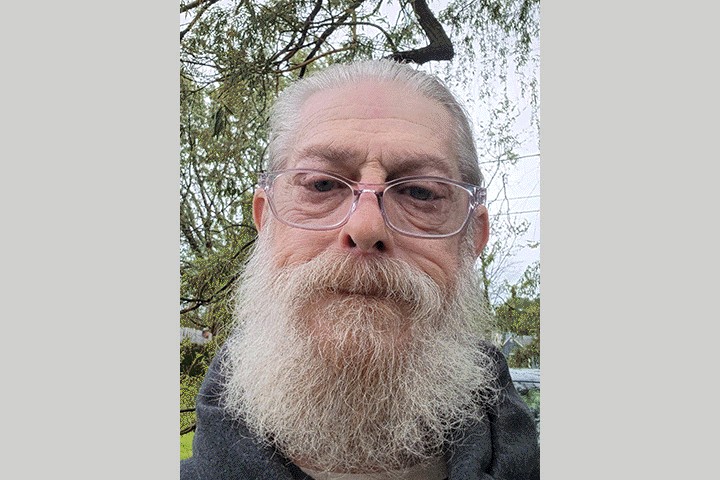A Changing Treatment Plan

- Stage IV diagnosis
- Changing chemotherapy as the disease progresses
- Y-90 radioembolization
- Chemo with breast cancer drugs
A week before Thanksgiving in 2019, I set a goal to swim 20 laps for 2020.
I was offering my swim laps for a friend’s brother who was recently diagnosed with stage IV pancreatic cancer. Little did I know that I, too, would be diagnosed with this horrific disease on November 23, 2019.
It started with this consistent throbbing pain in the middle-left side of my abdomen, for two straight days. I was not feeling up to my usual self, especially after engaging in my usual activities of daily living, and swimming.
I went to the emergency department (ED) at Community Memorial Hospital in Menomonee Falls, Wisconsin, because the ED at the main Froedtert Memorial Lutheran Hospital (FMLH) in Milwaukee had a seven-hour wait time. The ED physician there ordered lab tests, including a CT scan. Within one hour she returned to my bedside exclaiming, “You have stage IV pancreatic cancer and there is nothing else we can do to help you!” My sister was with me, and she and I were extremely shocked by the abruptness of this news. We were taken aback by how it was expressed with no medical plan of action to offer.
Treatment Starts Immediately
I have been a Crohn’s disease patient at FMLH for nearly two decades. My physicians there are very familiar with who I am. I had the ED physician telephone my colorectal surgeon, Dr. Mary Otterson and her APRN, Sarah Lundeen. I knew that either one or both would intervene to offer me assistance, even given that it was late at night. And they surely did! Dr. Otterson proceeded to admit me to FMLH, where I was warmly welcomed by her surgical resident and the nursing staff.
Within 24 hours, I was visited by the surgical oncology team at the Clinical Cancer Center headed by Dr. Kathleen Christians. Blood draws and diagnostic tests were done, including a carcinoembryonic antigen (CEA), CA 19-9, and CT of the abdomen and pelvis with contrast. The scan revealed a large pancreatic tail mass extending into the splenic hilum and three suspicious liver lesions, raising concern for metastatic disease. An MRI revealed the same images as the CT scan. I also had an endoscopic ultrasound-guided biopsy.
Within 10 days I had a Mediport placed to prepare me for initial infusions of gemcitabine and Abraxane, the treatment planned by my oncologist Dr. Ben George. I started that treatment on December 4, 2019, and remained on it until December 15, 2020, when disease progression was detected on a CT scan. On December 18, 2020, treatment with irinotecan and 5-FU was initiated. That lasted until June 7, 2021, when disease progression was noted on a CT scan. Chemotherapy was reinitiated with mFOLFOX6 from June 18, 2021 until March 4, 2022.
Nearly 2.5 years of palliative chemotherapy was wreaking havoc on my body, especially causing extreme neurotoxicity in my fingers and toes, chemotherapy brain fog, fatigue, lack of appetite, extreme weight loss, alopecia, and a peculiar metallic taste in my mouth.
On December 20, 2021, I had a Y-90 radioembolization procedure done by Dr. William Rilling. On June 30, 2022, results demonstrated that the procedure worked to eliminate three of the tumors on the left side of my liver. I still have the tumor on the pancreas and one on the right side of the liver that are being attended to by my oncology team. I have also met with radiation oncologist Dr. William Hall about possible future treatments.
Chemotherapy That Is Easier on my Body
In order to give me a break from the consistent aggressive chemotherapy regime, since March 4, 2022, I have been taking two cancer pills that are normally used to treat breast cancer—Ibrance and Mekinist—to treat the metastatic pancreatic cancer. I have the KRAS G12R gene mutation and CDKN2A copy number loss. This current treatment is for three weeks on and one week off so as not to cause a return of my severe pancytopenia (lower-than-normal red and white blood cells and platelets). So far, these two cancer pills are working to prevent disease progression; as of June 23, 2022, stable disease is revealed on CT.
I am doing very well these days and look forward to resuming my role as a Professor of Theology and Ethics during the 2022-2023 school year at Mount Mary University, Milwaukee. This summer, I am enjoying relaxing, praying with my prayer groups, reading, writing, and riding my Trek bike.
Shawnee passed away shortly after sharing her story with Let’s Win. She and her doctors tried many treatments to allow her to as normal a life as possible. We offer our deepest condolences to her family.



